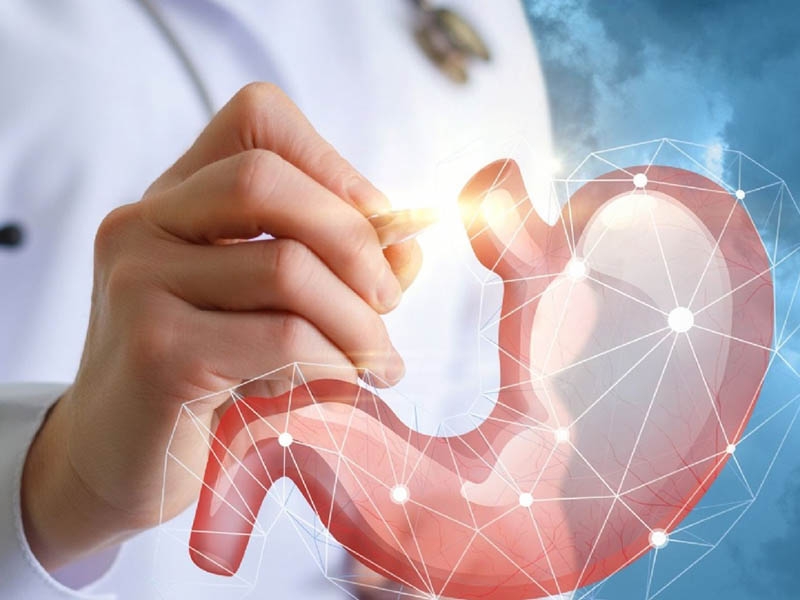
Gastroenterologist
Watch our video about Gastroenterologist
A gastroenterologist is a medical specialist focused on diagnosing and treating disorders of the digestive system, including the esophagus, stomach, intestines, liver, pancreas, and gallbladder. They handle conditions ranging from common digestive issues like acid reflux to more complex diseases such as inflammatory bowel disease (IBD) and colorectal cancer. Gastroenterologists also perform diagnostic procedures like endoscopies and colonoscopies to examine the digestive tract, ensuring accurate diagnoses and effective treatment plans.
When Should I See a Gastroenterologist?
You should see a gastroenterologist if you experience symptoms such as persistent abdominal pain, heartburn, diarrhea, constipation, or blood in your stool. Additionally, if you have a family history of gastrointestinal diseases or are over the age of 50, regular check-ups, including screenings like colonoscopies, are recommended to detect early signs of conditions such as colorectal cancer. Chronic conditions like celiac disease or Crohn’s disease also require regular gastroenterological care to manage symptoms.
What Diseases are Treated by a Gastroenterologist?
Gastroesophageal Reflux Disease (GERD)
GERD is a chronic condition where stomach acid frequently flows back into the esophagus, causing heartburn and possible damage to the esophageal lining. Treatment includes dietary changes, medications, and sometimes surgery.
Gastritis
Gastritis is the inflammation of the stomach lining, often due to bacterial infections, prolonged use of NSAIDs, or alcohol. It can lead to nausea, vomiting, and stomach pain. Treatment typically involves medication to reduce stomach acid and dietary adjustments.
Crohn’s Disease
Crohn’s disease is a chronic inflammatory bowel disease (IBD) that affects any part of the gastrointestinal tract. It causes severe diarrhea, abdominal pain, and weight loss. Treatments include anti-inflammatory drugs, immune system suppressants, and surgery in advanced cases.
Ulcerative Colitis
Similar to Crohn’s, ulcerative colitis is an inflammatory condition, but it affects the colon and rectum. It results in abdominal pain and bloody diarrhea. Management includes medication to reduce inflammation and, in some cases, surgery to remove the colon.
Irritable Bowel Syndrome (IBS)
IBS is a functional disorder causing abdominal pain, bloating, constipation, or diarrhea. It is managed through dietary changes, stress management, and medication to control symptoms.
Non-Alcoholic Fatty Liver Disease (NAFLD)
NAFLD occurs when excess fat builds up in the liver without alcohol involvement. It can progress to liver inflammation and cirrhosis. Treatment focuses on lifestyle changes, including weight loss and improved blood sugar control.
Colorectal Cancer
Colorectal cancer affects the colon and rectum and often starts from polyps in the colon. Regular colonoscopies can help detect this cancer early. Treatment options include surgery, chemotherapy, and radiation.
What Tests Does a Gastroenterologist Perform?
Gastroenterologists perform a variety of diagnostic tests. The upper Endoscopy examines the esophagus, stomach, and duodenum for conditions like GERD, ulcers, or tumors. Colonoscopy inspects the large intestine for polyps, cancer, or inflammatory diseases. Stool tests can detect infections or blood in the stool, while abdominal ultrasounds provide imaging for organs like the liver, gallbladder, and pancreas. In some cases, biopsies are taken to further analyze suspicious tissues.
When Should You See a Gastroenterologist?
It is recommended to consult a gastroenterologist if you experience chronic digestive symptoms such as heartburn, bloating, diarrhea, constipation, or rectal bleeding. Regular screenings for colorectal cancer are advised for individuals over 50 or those with a family history of gastrointestinal conditions. Additionally, those with chronic conditions like Crohn’s disease or ulcerative colitis should maintain ongoing care with a gastroenterologist to manage symptoms and prevent complications.
What to Ask a Gastroenterologist at the First Consultation?
During your first consultation with a gastroenterologist, it's essential to ask about the potential causes of your symptoms, the diagnostic tests that will be required, and the available treatment options. Inquire about lifestyle and dietary changes that can alleviate your symptoms and discuss preventive measures if you have a family history of gastrointestinal diseases. If you are managing a chronic condition, ask about the long-term plan, the frequency of follow-up visits, and specific strategies for symptom management.
At Clinic Consultation, our expert gastroenterologists are available for personalized consultations, diagnostic testing, and effective treatment plans. Schedule an appointment today to ensure your digestive health is in the best hands.
Click the button below to schedule your appointment online.